Growth & Customers
How I raised $23 million and built Peanut as a female founder
Learn how Michelle Kennedy left her corporate lawyer role at Badoo and raised $23 million to start her own tech business, Peanut.
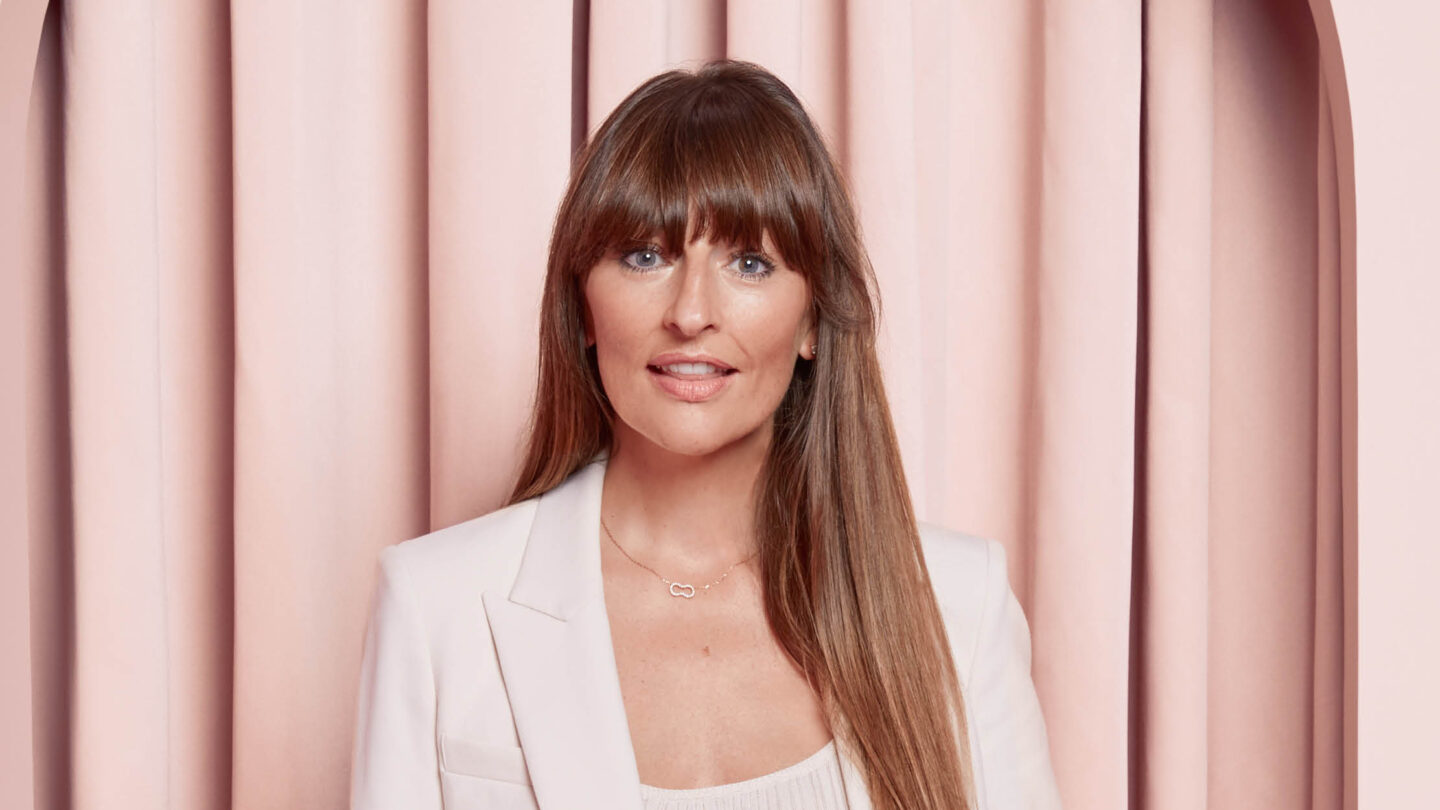
Never miss an episode
Subscribe to the Sound Advice podcast
Subscribe by email and get the Sound Advice podcast delivered to your inbox every two weeks with a ton of related articles, templates and problem solving guides for small businesses so you can put our Sound Advice podcast into practice.
There are already so many challenges when you decide to start your own business, but then add being a woman in tech into the mix, and it gets even harder.
Michelle Kennedy left her role as a corporate lawyer to start her own tech company, Peanut—a safe community for women to share advice and support on fertility, pregnancy, motherhood and menopause.
But funding your business is no easy feat.
With her background at dating-focused social network Badoo and a lot of determination, Michelle managed to raise $23 million, but she soon realised that this is not realistic for everyone.
She has since launched a micro-fund, Peanut StartHER, to help other women kickstart their own entrepreneurial journeys.
This is the story of how Michelle fought back against prejudice and is continuing to inspire other women to take the leap of faith.
Here’s her unfiltered advice:
- Leaving a high-profile job to start your own business
- Transitioning from a corporate lawyer to an entrepreneur
- The things you don’t want to do, can be some of your most helpful teachings
- Institutional finance isn’t your only option
- Investment is a two-way street—evaluate your investors as much as they evaluate you
- Putting the pressure on to invest more diversely
- Peanut StartHER: The rich auntie you need to help fund your business
- Fighting back against prejudice as a woman in tech
- Creating a culture where failure isn’t feared
- Build your communities by being curious and thinking of every minute detail
- Creating safe cross-generational communities for women
Leaving a high-profile job to start your own business
Kate Bassett:
So Michelle, you went from corporate lawyer to deputy CEO of Badoo. What is it that made you quit that high-profile job to start Peanut?
Michelle Kennedy:
Madness. No, it didn’t happen immediately. It was a gradual move.
I had the idea of Peanut when I had my son, but you have a new baby, you have bills to pay, you have responsibilities. And so I knew I wanted to do something. I just hadn’t really found the moment.
Plus, I’d gone back to work when Finn was very young, and we were building something incredible. We were at the start of building something new, which became Bumble.
So we were busy. It wasn’t like I had time on my hands to think, “And wouldn’t it be great if I could also on the side do something else?”
I think what was gradually happening was I was getting and developing more of a taste for wanting to do something for myself.
I wanted to build a product that I wanted to use, and I needed, I was in a market as a consumer where it felt empty, it felt lacking in these things that I needed.
I wanted support, I wanted community. I couldn’t believe nothing was really existing or being built.
And so that was the kind of emotional side.
And from a practical side, because I did have bills to pay because I did have a mortgage and a baby, I wanted to make sure that what I did was right for my family, but also sustainable.
And so I was saving, I was making sure that where I could, every bonus I got, it was going into a squirrel pot and all of that was, it was very intentional.
So it got to the point where my son had kind of reached an age where it made sense and my professional life at Badoo felt very familiar, and I knew exactly what I was doing, and I was ready for a new challenge.
I felt that I had saved enough to bootstrap what I wanted to do and give it a good go and get things started.
Kate Bassett:
So what stage was Peanut at then, when you left Badoo and how much of this squirrel pot did you have?
Michelle Kennedy:
I mean, Peanut was nothing when I left Badoo.
It was a peanut, it was an idea, and it was nothing. It was some mad conversations with one of my girlfriends who was like, “This is very boring. We talk about this every time we see each other. Can you just go and do it or let’s change the record.”
And the squirrel pot was enough to pay a couple of engineers for six months. And that’s kind of where I’d got to.
I put other things in place too, and I know this isn’t terribly fashionable. I think that there is a rhetoric, which is if you’re going to be a founder or an entrepreneur, there can be no plan B. Everything has to be a plan A. You just have to make plan a work.
Whilst I understand that mindset, actually when you’ve got a baby, you have to have a plan B. That’s not an option. It wasn’t an option for me.
So my plan B had to be, I can fund it myself and I can keep paying the bills.
So I stayed on the boards of Badoo and Bumble because I knew that I needed it, firstly, it was good mentally stimulation, keeping my understanding of the market, but I had bills to pay, and I wanted to make sure that there was some stability.
So I suppose that that moment of going and saying, “Right, I am leaving, and I am doing this,” was blanketed a little bit by, “Don’t worry, I’ll still see everyone quarterly when I check in to see how their business is going or if they need something.”
And I kept that going for a while after I left before I launched Peanut.
Kate Bassett:
And had Peanut failed, what was the plan B?
What was the backup option?
Michelle Kennedy:
I was going to have to go back and run someone else’s company again. And I loved everything about what I was doing in dating. I loved it. I loved the product, I loved the people, I loved the innovation.
I was never tired of that. I just had a real pull to do something significant that I thought hadn’t been done for women like me.
And if it didn’t work, at least I’d tried to do it.
Transitioning from a corporate lawyer to an entrepreneur
Kate Bassett:
And tell us about that moment you quit. Do you remember that?
How scary was it particularly as a new mother?
Michelle Kennedy:
Yeah, I mean, they were conversations that kind of were ongoing. It’s not just one conversation. Also, you’re in a senior role. So I had a six-month period where I was still in the business.
So a six-month notice period, you are kind of living with it, thinking about it, having conversations and I can’t stress it enough. I still really loved what I did, so it was compelling. It wasn’t like I didn’t want to be there, I just really wanted to go and do something else.
So it was a long period, it wasn’t ripping the plaster off, and I was gone the next day.
It was six months of going into the office every day pretending it was not happening, knowing that it was, talking to the founder, kind of going through it with him to say, “This is happening. I am going. What is the succession plan?” And doing a lot of that.
So yeah, it didn’t just happen overnight.
Kate Bassett:
And in terms of your background, how hard was it to make that transition from corporate lawyer to business leader and then to entrepreneur?
Michelle Kennedy:
I think as a corporate lawyer and as any lawyer, your training is in risk. So you are looking for where’s the risk, and how do we avoid the risk? And you are building scenarios to try and avoid or minimise that element of risk.
And obviously risk is in every part of every business and so that you have to develop an appetite for risk as you are in business.
But it was a phenomenal grounding for me in terms of discipline, in terms of understanding how a business works. I can’t get rid of any of that, and I never would change it.
I think the challenge is when you’re an entrepreneur, you have to be like, “There’s the risk and I love it. And running head first into the risk, love that running for it.”
That’s hugely different.
And it is challenging when your whole discipline, your whole career has been around minimising risk, and you’re like, “I don’t care.” That’s hard.
But I certainly found advantage in, I was never scared of a term sheet option plans, I drafted them, nothing scared me from that perspective, none of that felt alien, which is great because everything else felt alien.
So it was nice to have comfort in the stuff that I could do, and I was familiar with.
The things you don’t want to do, can be some of your most helpful teachings
Kate Bassett:
And in terms of comfort, did Andrey Andreev, who’s the founder of Badoo and Bumble, offer you any lessons or tips on how to scale a business?
What did you learn from him?
Michelle Kennedy:
I would not be doing Peanut, but for Andrey, right?
And that’s the truth of the matter. I learned at the hands of a quite brilliant, demanding, challenging founder.
And similarly with Whitney, the founder of Bumble, she also was somewhat of a teacher and educator to me.
I had education from both, and hopefully they learned from me too, and we had a relationship where we were sharing insights and sharing thoughts and practice and learning together.
So from that perspective, it was the best training you could ever wish for there. There were things that he had me do that I did not want to do.
He had an idea about wi-fi hotspots, and he had me pounding the streets of Soho trying to get coffee shops to accept our wi-fi hotspot.
And I just didn’t want to do it.
I was like, “I did not study this hard to do this,” but you know what, I did it. And probably things like that taught me that there was nothing I couldn’t do, and you had to adapt.
And I became a saleswoman, brilliant when you’re fundraising.
So all of these things, probably he doesn’t even know how much some of that stuff I despised him for at the time or didn’t want to do it, but how impactful it was in the long term.
Similarly, with Whit, she is obsessed by brand, obsessed by brand. The reason that Bumble is so recognised is because we would spend hours talking about the exact Pantone of the yellow.
And that’s something that I took with me to Peanut.
I care about the brand, and I want to have all of that tone of voice and all of that.
So all of those lessons were super important, and you just don’t even know it at the time. You are living it, but you take all of it with you.
Institutional finance isn’t your only option
Kate Bassett:
I want to come on to fundraising. I know you raised your first round in 2017. What is it that made you go for venture capital, and how did you find your investors?
Michelle Kennedy:
Naivety is the honest answer. Complete naivety.
If I were doing this again, and I really hope if anyone’s listening to this, and they’re thinking of doing it again, you don’t have to start with institutional money, but I was coming from a business where I was running an enormous organisation where we had one PE [private equity] house as a minority shareholder.
And really my experience therefore was institutional finance. I didn’t know of other routes. Plus things were different in 2017. There weren’t angel networks looking to invest in women. That was a concept that is relatively new.
So I didn’t know about getting an angel around a friends and family around high net worths, but all of that was completely unknown to me.
I also completely honestly had no friends or family who could casually write £50,000 cheques. Who are those people who had those friends?
I didn’t have them.
Kate Bassett:
I don’t have friends like that.
Michelle Kennedy:
I didn’t have that. And I think that’s probably why for a very long time we had a very elite type of founder who had access to that kind of money.
So really, I felt that my only option through naivety, ignorance of what else was out there, but also probably the fact that it wasn’t out there was institutional capital.
So taking institutional money for me was the most obvious route.
It was probably the only route I was aware of, and I was very fortunate because I was coming from running a big business where people knew who I was.
Investment is a two-way street—evaluate your investors as much as they evaluate you
Kate Bassett:
And talk us through that process because I know you’ve described the whole experience of raising money as terrifying.
So what do you know now about the process that you wish you’d known then?
Michelle Kennedy:
I hear it a lot and I hear it a lot from young women in particular. Now when I’m on the other side, and I’m investing, you are giving them something. Yes, they give you money, but you dilute your ownership in your business.
They get shares in your business, your blood, your sweat, your tears, your absolute obsession with what you are building, you are allowing them into that journey with you. It’s two-way.
It’s not just they’re giving you money, and you have to be ever so grateful and thanks so much and let me show you what a good student I am and show you my results every quarter. This is we’re on a journey together, and I’m allowing you into this opportunity.
As soon as you change your mindset into the fact that you are also allowing people into an opportunity, the dynamic changes because they’re assessing you, absolutely.
But you are assessing them too.
And that equalises the dynamics, and you feel a little bit more empowered. There is, I think, a tendency to be feeling grateful and obligated when you don’t remember what they get in return.
I think as soon as you change the dynamic, and you understand that you are inviting them into the opportunity, your obligation and your feeling of obligation reduces.
They’re investing in early stage startups, not because they are looking for a 2x return. They’re looking for a 5x, 10x, 15x and beyond return, and they believe that you might be the one to deliver that to them.
There’s something in it for them too.
So trying to remember those dynamics and I never had that in my mind’s eyes, certainly for the first couple of rounds that I did it. It’s something that I’ve really learned.
Kate Bassett:
That’s a really good tip about changing your mindset. And actually those investors in many ways should be pitching to you.
Michelle Kennedy:
It’s both, right? Because it’s a marriage. If it’s hard, you need to be able to turn to them. If it’s great, everyone loves you, and it’s great. So who cares?
It’s about the times that it’s really hard and if that marriage isn’t strong enough, that’s going to be a problem.
So you really want to be making sure that you are assessing the relationship and as hard as it feels to get to a point where you’re going to be offered money so much harder to remove an investor that you don’t want to continue working with.
Putting the pressure on to invest more diversely
Kate Bassett:
I mean, we know that female entrepreneurs are still grossly underfunded compared to male entrepreneurs.
What do you think are some of the structural factors that are holding women back when they’re looking for funding?
Michelle Kennedy:
In 2021, before the markets changed, there was so much capital flying around the investments, the valuations were insane and the proportion of cheques written to women founders reduced in the craziest frantic year, women got less.
So we got less than 2% of all capital, 2% and we got less than 2%. It dropped. So for me that was really eye-opening because I think there are so many challenges.
The people who are investing in the funds who then go and make the investments in the entrepreneurs, if they don’t have women in and a diverse kind of LP base, there can’t be any pressure put on the funds to invest more diversely. And so that’s a problem.
The fact that even within venture capital fund, even if you’ve got women associates, principles, partners, unless you have women who are on the investment committee who can say yes or no to deals, then deals will fall off there.
There is an unconscious bias whether they know it or not.
And so even if you think that your pipeline is good, people are going to fall off at the pipeline at the top, at the last hurdle. I think it is somewhat secular.
If we don’t have more women who get investment, they can’t have the opportunity to have a capital moment. Therefore, they don’t have that money power dynamic to be able to put pressure as an LP on the funds in terms of where they invest.
So there is a challenge there, but there is an opportunity which is whilst we are making changes to get more women into venture, it’s not just for the women, you might not want to only look at women-led businesses, it’s on men too.
It’s everyone. We all have to be doing it.
So I think the opportunity is to keep reporting pressures on, actually. I want more people to have to report on how many women did you invest in, how many underrepresented founders did you invest in? What were the results of that?
We’ve just got a long way to go, and we’re playing catch up again.
Peanut StartHER: The rich auntie you need to help fund your business
Kate Bassett:
And in terms of speeding up that process, tell us a little bit about what you are doing to change the world of funding and level the starting line.
Michelle Kennedy:
I’m in a super, super fortunate position.
I was part of an amazing company which had an amazing exit. And as a result of that, I know how important it is for women to have these moments.
Peanut for me has been all consuming. And within Peanut I see the struggles that women have. I see the ambition that women have, the ideas and the brilliance. There’s so much brilliance in our community.
It was kind of a no-brainer to say, “Do you know what? Using kind of Peanut as the brand name, but using my position, let’s invest in women-led companies who are looking to make a difference and have a social impact.”
So we have a small micro fund, it’s called Peanut StartHER.
It’s for women who don’t have the friends and family who can write the casual £50,000 cheque. You can think of Peanut as your auntie who can, and we are most likely going to be your first check-in, and we are going to give you the opportunity to get started.
But more than that, we also have an investment committee of brilliant women who will open their network to you.
So it’s not just about the money, it’s also about spending it well and having the right connections. And certainly in my youth, I never had any clue about the importance of a network, and I truly believe that the successful men that I know have always known about the success of a network.
And so it really wasn’t until I’ve matured in a business sense and professional sense that I’ve really understood that.
So we share our networks with the companies we invest in. And that might be for PR, that might be for further intros to investments it’s a full spectrum.
Kate Bassett:
So check out Peanut StartHER, the wealthy auntie.
Michelle Kennedy:
Exactly, exactly.
Fighting back against prejudice as a woman in tech
Kate Bassett:
You’ve said as a woman in tech, you’d met with stereotypes, challenges, and prejudice.
Talk us through some of those other challenges that you’ve come up against and who you turn to for advice and support.
Michelle Kennedy:
I mean, it’s so hard. I do think things have improved. I must just say that because I don’t want this to all be kind of down and I do want to celebrate some of the changes so that other women feel encouraged and excited about starting.
There have been tremendous improvements. I think that some of the comments that I used to get back in 2017, 2018, I think people would be fearful of making them now.
But there were certainly times when I heard, “Does your husband like what you’re doing? You’ve got a young child. Do you think you’ve got time to commit to being a founder?
“The most successful founders work on weekends. How are you going to do that with a child?”
I’ve had the full spectrum, and it’s appalling. And at the time and the time that I was in, actually all I could say is, “Let me tell you why I know I’m going to win. And let me tell you why I can challenge that.”
I had one very, very clear memory of talking this investor through the engagement that we were seeing on Peanut and the high levels of engagement.
And he said, “Well, I’m definitely not telling my wife about it because then she’ll never talk to me.” And it’s just comments, microaggressions like that.
What it didn’t do was recognise that women are the world’s most valuable consumer. We really direct decisions on household spend. We are responsible for more spend per capita than men, particularly in the age group of, I think it’s 26 to 45.
So that key area of when you are either considering motherhood or maybe not, but around that time, and yet we’re patronising them to say, “Just another thing that my wife won’t talk to me because she’s on the internet.”
Or just terrible comments like that. And that was very hard. Things have improved.
There is a general understanding that women are more successful and as founders, the returns are often incredible. And so there have been changes. They’re not enough changes but they’re coming.
And I think the ability for us to say when something is inappropriate and to say when that feels prejudice or biased, or I think is improving. And we share stories in terms of who I turn to, I mean, it depends on the mood.
I’ve got a little group of founders, and we all go for dinner, and we’re like, “It’s awful, isn’t it? What are we doing? Why are we doing this?”
And we have those moments, and then we go for dinner-
Kate Bassett:
You need a good moan.
Michelle Kennedy:
Absolutely, get it off our chests. “Guess what this guy said? Guess what happened there? God, why are we doing it, is terrible.”
And then the next week we all go for dinner, it’s like, “I had this amazing win,” and everyone’s super excited.
It’s like, “Yeah, we’re going to rule the world. Can’t wait to IPO.”
It is very up and down as a founder, it becomes harder to feel really up because you start to have higher expectations of yourself.
So the things that felt like an enormous win start to feel like, “Yeah, I should get that. What’s next?”
So it becomes a little bit harder. So having a little network around you where people remind you of how amazing it is really important.
I remember when we first got a feature on the app store, and it was the most incredible moment in the world, and now it gets shared on a Slack channel, and we all move on with our day, you forget how much work you did to get here, and you need your own support network so that they remind you, and you remind them.
Kate Bassett:
So do you consciously try and make sure you still celebrate those small wins and those milestones?
Michelle Kennedy:
It’s very hard, I’m very bad at it. I’m also a very bad critic of myself and want more. So it’s very hard. But the best advice I was given is if you don’t do it for you, do it for the team.
And that’s easier, as soon as you take yourself and your self-interest out of something, and you put your team in it, all of a sudden of course you want to do it because you want your team to feel like they’re doing amazing things.
So I am better at celebrating the team and their efforts, probably. Yes.
Creating a culture where failure isn’t feared
Kate Bassett:
I’d love to talk to you about your team and the culture that you’ve created.
I know you said you have a real engineering mindset at Peanut, so how have you created that culture of innovation and experimentation?
Michelle Kennedy:
I mean, I think everyone must say this about their own team, but I am obsessed by Team Peanut.
I just think that I am so lucky to go every day and work with people who are infinitely smarter than me and learn from them every day.
And the motivation and the determination that they have is incredible. The engineering mindset is of course you have to get things wrong because that’s the only way you get to the right answer.
And so there is no real concept of failure, which is really amazing and is something I’ve had to learn from them.
As a young woman and certainly as a professional young woman, even before I joined business, but as a lawyer, failure was crippling.
Self-doubt was all consuming, and you start to get a little bit braver in business, but still you’re plagued with it, and you think “Should I be here? I’m the only woman in the room and this feels awful. What do they think of me?”
All of these terrible moments and thinking, I mustn’t get it wrong. And it’s only when you hang out with engineers, and they’re like, “How weird.” The only way to get to the answer that you start to get more comfortable with it.
So reframing failure as learning is the most incredible part of Peanut. We just keep going, and we get loads of stuff wrong and that’s great because we just use it to get more stuff.
And so that has been something that we’ve had since day one probably because one thing that we had from day one is more engineers. That’s what we needed to get going.
And we built the engineering team first before we then layered in product and design and growth and marketing. So we started that. So then it feeds into every part of the business, I think.
Build your communities by being curious and thinking of every minute detail
Kate Bassett:
And you now have around 3.5 million monthly users.
What would be some of your practical tips to other entrepreneurs on building that community?
Michelle Kennedy:
Building community is really hard, and I think that people sometimes underestimate it. Community has become a little bit of a buzzword. I think that it’s very fashionable to say, I’ve got this DTC [direct to consumer] business, and we also have this amazing community.
But at its heart, community is very difficult because you are dealing with real people and their feelings and their emotions.
And what you are trying to do is make sure everyone has the best possible experience.
So that can be very challenging. Layer on top of that, women who are going through these very pivotal life moments, whether that’s going through a fertility treatment or they’re pregnant, or they have a four-week-old, or they’re going through menopause.
These are very seismic life moments and their expectations as a result are extremely high.
So you have a very discerning user base who are, they have expectations that are high, they are time poor, and they’re not prepared to put up with a product which isn’t superior. So all of that actually, it’s very challenging. It’s very difficult.
The best advice I can give is being obsessive about watching and learning and doing it again. And that doesn’t just mean on my own product, by the way. I am that creepy person that sits next to you on the Tube and is looking at what’s on your phone.
Because I want to know why have they opened that app? What’s going on there? Why are they doing that?
And I do a lot of watching and a lot of talking. I’m very nosy, always want to know what apps are on your phone, what are you using, what are you doing?
And I think that all feeds back into what we build and how we build it. So I think the best advice is to be curious and be nosy, but also be kind of obsessive about what you are building. We go into real detail.
If I know that a woman, for example, is going through IVF, the last thing she needs to see in her feed on Peanut is someone with their pregnancy scan.
So we create walled gardens and rules around what different user profiles will see.
That level of obsession and detail is not something that you would build if you’re building Twitter again or whatever. We are building for our audience, and it means that they trust us, so they come back.
So our attention grows, our engagement grows. And so it’s really about finding also what are those key metrics that you need. And then just building for that metric.
Creating safe cross-generational communities for women
Kate Bassett:
Michelle, I love how obsessive and curious and passionate and ambitious you are.
What is your vision for Peanut? What does success look like for you?
Michelle Kennedy:
Peanut is building a platform for women, and we need safe spaces for women, and we need women to be able to have conversations around key life stages.
And that life stage might be puberty and that life stage might be golden years and everything in between.
And so really the wider vision is we support women at all of these life stages, and it’s cross-generational, three women all in the same family, each at a different life stage should all be able to use Peanut and find community and support and care and play and all of those factors and not be turning to Google to say, “My baby won’t sleep or have night sweats or what does this mean?”
But to have a community of women and peer support that will do that. But it’s incremental, and it means that we can’t be all things to all people right now.
So we’re very focused on fertility and pregnancy, motherhood, menopause, and we keep developing, and we keep going deeper, and then we go wider.
Kate Bassett:
I love that vision to have three generations of the same family all using the app to connect and create communities in different ways.
Michelle Kennedy:
It’s so important. I know nothing about menopause.
I didn’t know anything about it before we started building it, but I know it’s a biological certainty. If you menstruate, it’s going to happen.
And so the fact that we don’t have access to that information or even that the topic is taboo, for example, is bonkers to me. And it’s the same actually as pregnancy.
When we first launched Peanut, no one was talking about post-partum depression. No one was talking about a lot of the issues around identity and self-doubt to do with motherhood.
So it’s just about being able to legitimise conversations and that has to be cross-generational as well. How great.
Kate Bassett:
I know so many of these conversations are still hidden or shameful. So it’s really great that you are creating this safe space for women. Michelle, best of luck with scaling up Peanut.
Michelle Kennedy:
Thank you.
Kate Bassett:
And your mission to close the gender funding gap. It’s been such a pleasure chatting to you. Thank you so much for joining us.
Michelle Kennedy:
Thanks for having me.
Inspired by this small business story?
Wherever you’re listening or watching, subscribe to Sound Advice on Apple iTunes here.
We are also on Spotify and anywhere else you get your podcasts.
Join our community to share your insights and stories on Twitter @SageUK using the hashtag #SoundAdvicePodcast, on Instagram @SageOfficial or in the comments below!
Want to know more about Peanut or Michelle Kennedy?
You can check out Peanut on their website and you can find out more about Peanut StartHER here.
You can find out more about Michelle Kennedy on her Instagram or Twitter.
Small business toolkit
Get your free guide, business plan template and cash flow forecast template to help you manage your business and achieve your goals.
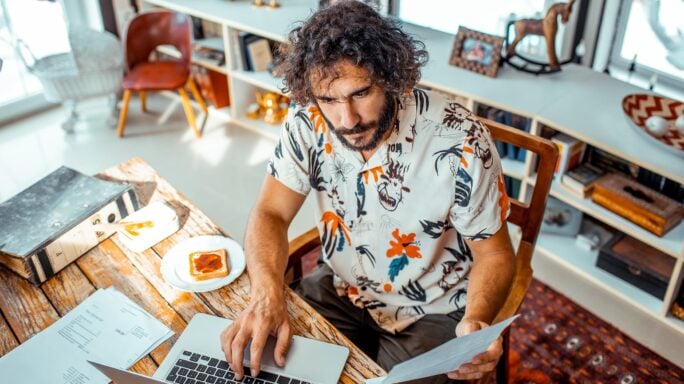
Subscribe to the Sage Advice newsletter
Join more than 500,000 UK readers and get the best business admin strategies and tactics, as well as actionable advice to help your company thrive, in your inbox every month.





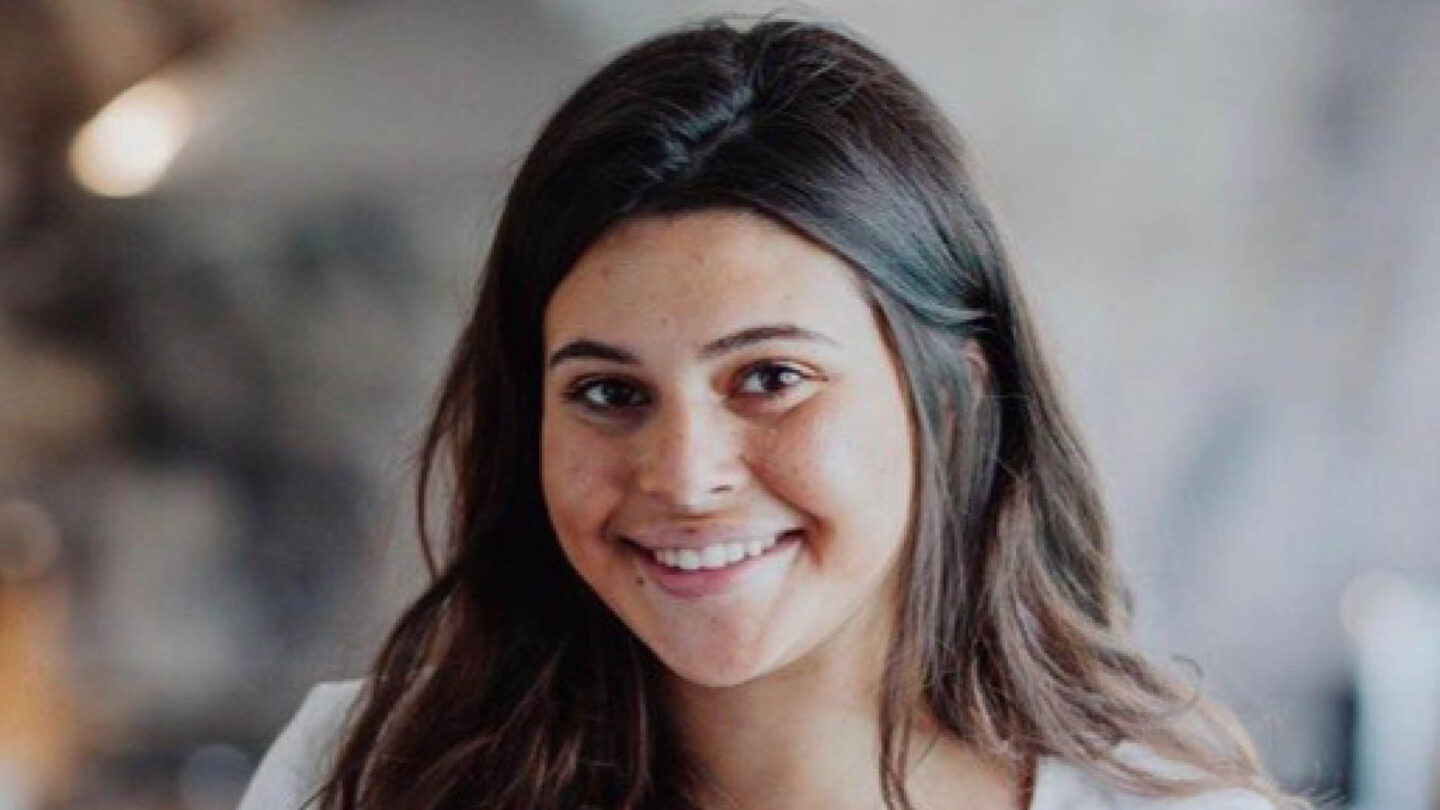

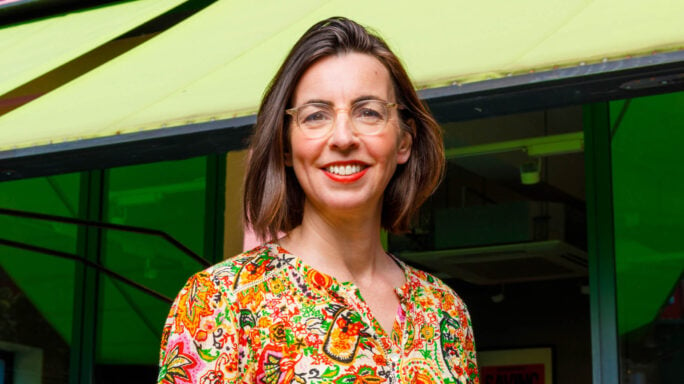

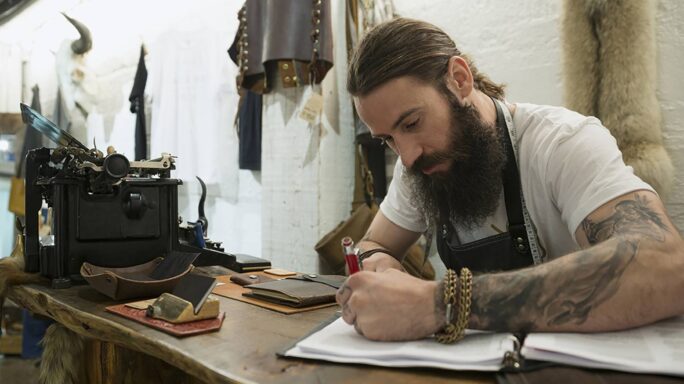
Ask the author a question or share your advice